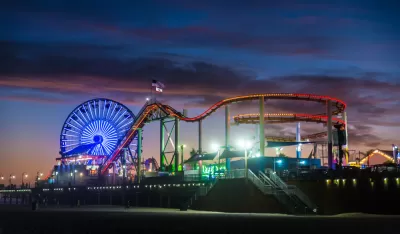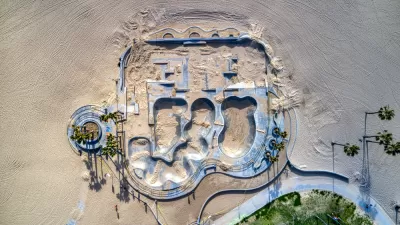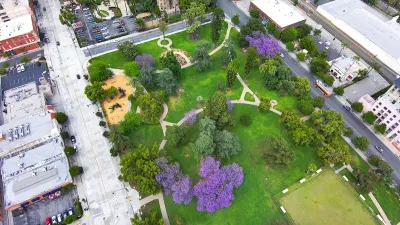Los Angeles County's Parks after Dark (PAD) program and the city of Los Angeles' Summer Night Lights (SNL) program are proving to save lives, lower crime, and reduce costs, writes L.A. County parks planner Clement Lau.

Summer gang crime prevention was the original motive for adding nighttime programming in the parks of Los Angeles—city first, then followed by the county. The city of Los Angeles' has a program called Summer Night Lights (SNL). The county soon followed suit with its own program called Parks after Dark (PAD). Writes L.A. County parks planner Clement Lau:
According to a 2013 DPH study, 78 percent of PAD participants, many of whom used to be sedentary, reported through surveys that they engaged in physical activity. Increased physical activity offers numerous health benefits, including (but not limited t0) reducing the risk of heart disease, diabetes, depression, colon cancer, breast cancer, dementia, and premature death. DPH estimates that if PAD participants continued weekly physical activity throughout the year, it could translate into a 5 percent decrease in the burden of diabetes, dementia, and heart disease annually.
PAD has helped to make communities safer as well. Serious and violent crimes in the communities around the original three parks dropped 32 percent during the summer months between 2009 (the summer before PAD started) and 2013. It should be noted that this reduction in crime was not just due to increased Sheriff's Department presence, but also from a greater number of park patrons engaging in PAD activities and building relationships. During the same time period, such crimes increased 18 percent in nearby communities with parks that did not offer the PAD program.
For more about the summer night time park programming, please see the source article.
FULL STORY: Surprising benefits from nighttime park programming in LA

Planetizen Federal Action Tracker
A weekly monitor of how Trump’s orders and actions are impacting planners and planning in America.

Restaurant Patios Were a Pandemic Win — Why Were They so Hard to Keep?
Social distancing requirements and changes in travel patterns prompted cities to pilot new uses for street and sidewalk space. Then it got complicated.

Map: Where Senate Republicans Want to Sell Your Public Lands
For public land advocates, the Senate Republicans’ proposal to sell millions of acres of public land in the West is “the biggest fight of their careers.”

Maui's Vacation Rental Debate Turns Ugly
Verbal attacks, misinformation campaigns and fistfights plague a high-stakes debate to convert thousands of vacation rentals into long-term housing.

San Francisco Suspends Traffic Calming Amidst Record Deaths
Citing “a challenging fiscal landscape,” the city will cease the program on the heels of 42 traffic deaths, including 24 pedestrians.

California Homeless Arrests, Citations Spike After Ruling
An investigation reveals that anti-homeless actions increased up to 500% after Grants Pass v. Johnson — even in cities claiming no policy change.
Urban Design for Planners 1: Software Tools
This six-course series explores essential urban design concepts using open source software and equips planners with the tools they need to participate fully in the urban design process.
Planning for Universal Design
Learn the tools for implementing Universal Design in planning regulations.
Heyer Gruel & Associates PA
JM Goldson LLC
Custer County Colorado
City of Camden Redevelopment Agency
City of Astoria
Transportation Research & Education Center (TREC) at Portland State University
Camden Redevelopment Agency
City of Claremont
Municipality of Princeton (NJ)





























